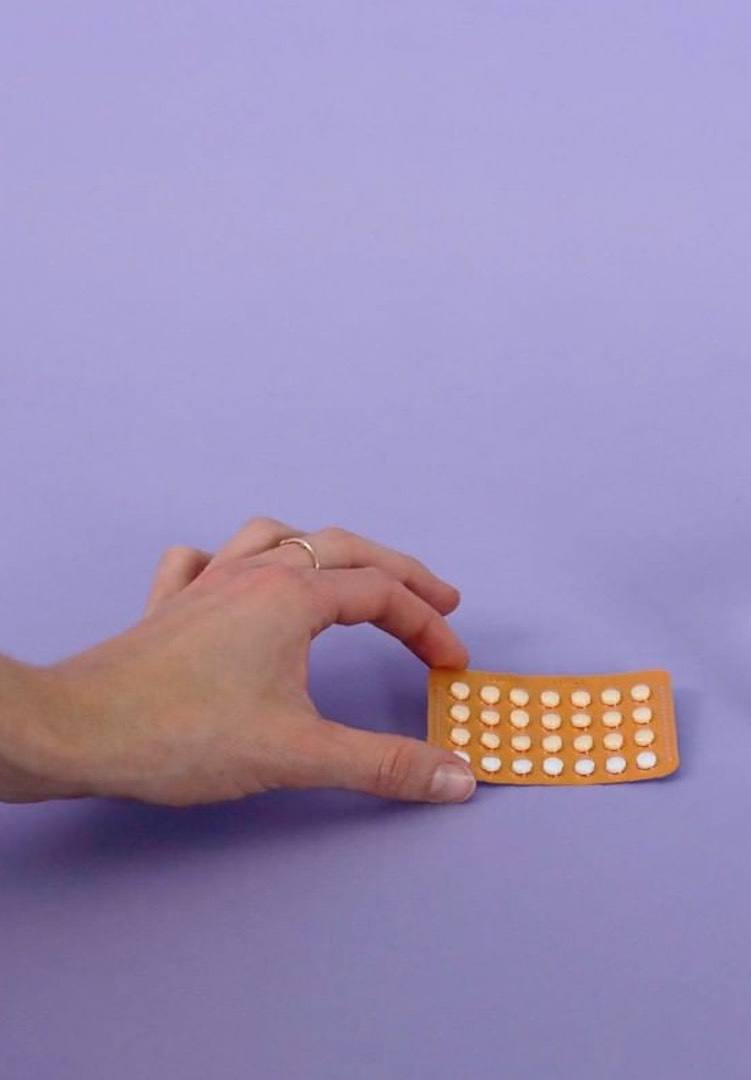Why aren’t we taking the side-effects of the pill seriously?
IMAGE VIA @KIN.FERTILITY/INSTAGRAM
WORDS BY HANNAH COHEN
“We haven’t got society to the point where they see female sexuality as a vital part of a woman’s life.”
I’ve been on ‘the pill’ since I was 17. The story around how it was prescribed to me is a bit of an odd one, but trust me when I say this is highly niche, relatable content for fellow children of general practitioners. It was prescribed to me by my dad in the middle of my family kitchen, my own equivalent of your run-of-the-mill doctor’s room.
Fortunately for me, taking the pill for the last four years has been relatively smooth sailing. However, a lot of the women in my life have lamented the mixed bag of not-so-friendly side-effects.
Looking for more thought-provoking reads? Try our Life section.
Listening to their stories of having to endure irregular bleeding, weight gain, decreased libido, acne and general exhaustion just to exercise their right to autonomy over their own fertility, makes my spine curl. But to me, the most harrowing of all is hearing about those debilitating side-effects that are invisible to the eye: mood swings, anxiety and depression.
Take just one quick glimpse at the latest headlines and you’ll see that the world has been thrown into a frenzy at the news of the slim chance of blood clots that could occur as a result of the AstraZeneca jab. Rightly so, the COVID-19 vaccine is being stressed as an essential that will keep being researched and developed to minimise its risks, so we can eventually achieve mass vaccination.
But when I punch ‘side-effects’ into Google the first six suggestions warn of a list of negative consequences that come from the oral contraceptive pill; a form of contraception that’s been available to women since 1960.
So why aren’t we taking the gendered responsibility of contraception placed on women as seriously as we take other health matters, even though the pill is taken by over 100 million people worldwide? Why are women faced with the ultimatum of either controlling their own fertility or sacrificing their mental health?
To help me unpack these burning questions, I spoke with the incredibly clever professor and founder of Monash Alfred Psychiatry Research Centre, Dr Jayashri Kulkarni, who has spent a great deal of her career researching the experiences of women who take the pill. More specifically, she’s delved into the impacts of estrogen and progesterone (found in varying levels in the combination pills) on the brain.
After initially venturing into studies that explored the protective results of estrogen in women with schizophrenia, Dr Jayashri took an interest in looking clinically at the mental health impacts of the different kinds of oral contraception.
“What was becoming apparent was that it was very clear that women on different types of the pill experienced, for the first time, really awful depression, and there were no other real issues going on in their life,” she told me.
Dr Jayashri found that women who had just started on the pill or had changed to a new pill were experiencing a spectrum of depressive moods that ranged from a lulled inability to feel highs and sensations of pleasures, to major depression. She pinned this down to the depressive effects of progesterone on the brain.
“We found that, in fact, the worst depression was experienced by women taking the progesterone-only pill because they were not getting the good effect of the estrogen to counterbalance that… so the very worst is the progesterone-only pills and then the next worst pills have only got a little bit of estrogen.”
At this point you might be wondering, ‘If so many women are on the pill and experiencing these mental health struggles, why aren’t there more mood neutral pills that won’t make me depressed on the market?’ Yep, same.
Dr Jayashri divulged that there is currently only one mood-neutral pill on the market. One. The real kicker? It’s not covered by the Pharmaceutical Benefits Scheme, meaning it’s one of the most expensive pills on the market and is therefore pretty inaccessible to many people suffering from mental illnesses.
It turns out there are some pretty archaic understandings of women’s sexuality that are hindering the development of a pill that is both affordable and doesn’t result in women developing mental and physical illnesses. A woman’s right to exercise autonomy over her own body is being treated in the world of medicine as, in Dr Jayashri’s words “an optional extra”, and it’s inhibiting further research into achieving safer contraception options for women.
“I’ve tried very hard to get grants to do these studies, and I haven’t been successful. I’ve been successful with other areas, but not this one,” Dr Jayashri told me. “We can pick up magazines, and read about how to improve your sex life, how to have better orgasms… but at some level, there’s still this [rhetoric of] ‘She can either go on the pill or she can go off the pill. It’s her choice’. It’s not absolutely necessary. So what is underneath that is, we haven’t got society to the point where they see female sexuality as a vital part of the woman’s life.”
Dr Jayashri believes that society isn’t quite up to speed on the fact that it is “every woman’s right to have a healthy sex life, to have an enjoyable sex life and to have control over her fertility”. Although the introduction of the contraceptive pill played a crucial role in the women’s liberation movement, she believes we’ve got a long way to go in overcoming these inherent biases against women having an active and enjoyable sex life.
“No matter how evolved and sophisticated we think we are, I think there’s this kind of primitive thinking that it’s the optional extra… [that women are] like the virginal bride who then becomes perpetually pregnant until she’s menopausal,” she explained. “Some people have actually said to me, ‘Well, she doesn’t need to take it if she’s depressed. She doesn’t need to take it’. Then what are you saying? So she’s just supposed to get pregnant?”
Another issue inhibiting the introduction of more mood-neutral pills into the market is what Dr Jayashri explained to me as a ‘mind-body block’ that’s preventing women’s mental health from being properly addressed when introducing new forms of sexual healthcare into the market.
“Whenever the manufacturers are looking at it and trying to get new ones onto the market, they will look at the physical health issues. So the clotting profile, breast tissue changes… those physical health side effects,” she said.
“There is still a barrier for people to realise that the gonadal hormones have an impact on the brain… I often have a lot of trouble convincing my healthcare practitioners to think about the mental health in any of the hormone conditions, and that includes using the pill, premenstrual depression, postnatal depression and menopausal depression.”
So where does this leave us? How can we move forward from grinning and bearing through the long list of mental health risks associated with taking on contraception responsibility?
According to Dr Jayashri, we can start by opening up a dialogue about the pill and its side-effects with our friends and our health professionals, and we can put pressure on pharmaceutical companies by arming ourselves with knowledge.
“We [need to] get women to understand and get health practitioners to understand that the woman who presents with anxiety, depression and there hasn’t been a whole lot of trauma or other horrible things happening her life… to have a look at what the contraceptive issues have been for her recently,” she said.
“Has there been a change, has she started a new pill? Even just getting that information out there, I think then promotes, or pushes the pharmaceutical industry to develop more pills that are mood neutral”
Instead of putting the onus on the women to give up their sexual freedom in exchange for better mental health, we need to acknowledge that if contraceptive responsibility is going to continually fall on women, all facets of women’s health need to be treated with the respect they deserve.
“We want pharmaceutical industries to develop pills that are mood neutral and mood friendly and have fewer side-effects. They’ve just got to get their act together and actually start to think about all the different things to test when they’re actually developing the new contraceptives as well,” Dr Jayashri added.
“Women are entitled to have good healthy sex lives and have an appetite and then also have control over their reproduction so they can enjoy their sex life.” As. We. Should.
Want to read more about Dr Jayashri’s studies? Head here.










